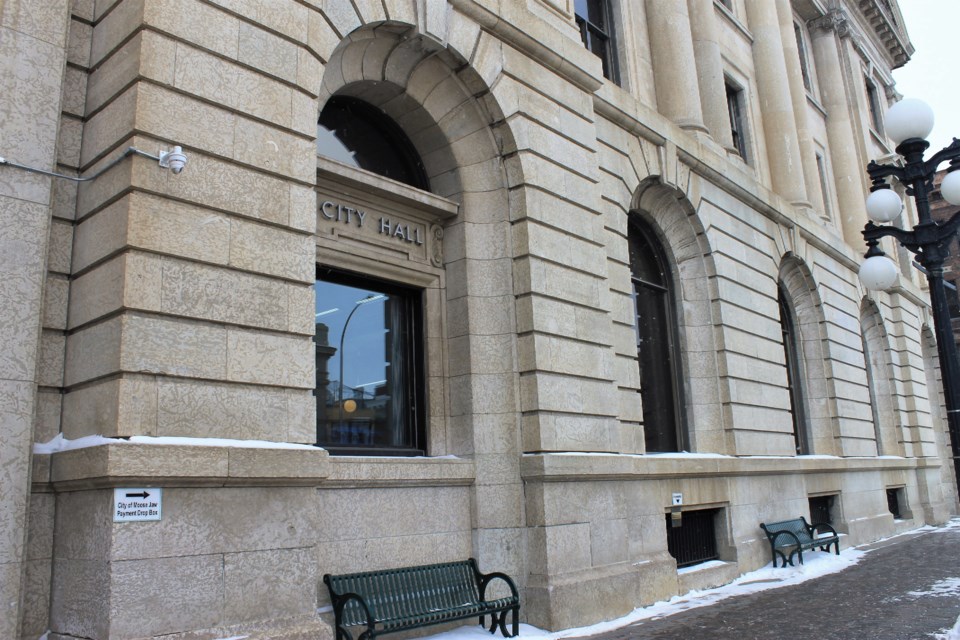Who should be considered a journalist and what media outlets are legitimate? Should bloggers be given the same access as professionally trained reporters?
Those were some questions city council wrestled with during its June 24 executive committee meeting, while reviewing a proposed communications policy for the City of Moose Jaw.
Communications manager Craig Hemingway produced the draft policy since the municipality does not have an all-encompassing plan. The proposed document includes guidelines that focus on media relations, public engagement strategies, social media usage, announcements about construction projects, emergencies, city council meetings, and internal communications.
It was the section on media relations and policies to handle news outlets that riled some councillors. Specifically, some councillors did not like that two blogs in Moose Jaw were listed in the document.
Some councillors also did not like a policy clause that read, “The City reserves the right to stop accommodating requests in cases where the respective media outlet continues to have false information, bias or a specific slant within their stories.”
In the end, council voted 5-2 in favour of removing the names of the blogs from the document; Councillors Crystal Froese and Brian Swanson were opposed.
Council then voted 6-1 in favour of removing the offending policy clause; Coun. Dawn Luhning was opposed. Council then voted 6-1 on a recommendation to adopt the policy; Coun. Brian Swanson was opposed.
Fake news and slanted news
“I am concerned about that (policy) statement,” said Coun. Chris Warren.
He explained that while false information is one thing, council can’t control if an outlet slants the news. He preferred to see that line “refined” so it doesn’t appear as if city hall doesn’t want to communicate with the media if outlets take a negative view of the municipality.
The same policy clause also bothered Froese, who pointed out editors have a right to their opinions. They take those positions to sell more newspapers or bring more eyeballs to their websites.
Froese’s background is in communications, so she has dealt with many media outlets in her career. She noted the old standard was to ask for a correction, an apology or even a retraction if something was incorrect.
However, she did not think council should tell people whether they are legitimate. The online world is changing quickly, Froese said, and more people acquire their information from places such as Buzzfeed and Huffington Post.
“It is more important that our communications strategy is strong,” she added.
Culture change in news consumption
The beginning of that clause says the municipality will monitor media coverage “and with discretion, may seek corrections if we deem the content to be incorrect, one-sided or a misrepresentation,” said Mayor Fraser Tolmie. City hall dealt with that problem in the past by speaking to the editors of the traditional news outlets — such as the former Times-Herald — if something was inaccurate.
However, he continued, there has been a “cultural change” with online news outlets. This dilemma was raised during a meeting at the Saskatchewan Urban Municipalities Association (SUMA), which discussed what authentic news is and if blogging is legitimate.
“Bloggers don’t have editors. How do you hold bloggers accountable for what they’re relaying to community?” said Tolmie.
Council has an obligation to its citizens to communicate what is happening in Moose Jaw and to get the facts right, he continued. If it doesn’t, the media is there to keep it accountable. Tolmie accepted that there will be a news slant, but said there could be problems if a blog publishes something and is unwilling to correct it.
Bloggers versus reporters
This is why traditional media reporters have credentials, Tolmie said. They have been given something to indicate they can have access to the information. The reporters who work at places such as the Moose Jaw Express are also held accountable based on their capabilities and by their editors.
Reporting that consistently has a slant or bias would raise a red flag more than an outlet that does it once, said Hemingway.
“I would like to treat this on a case-by-base basis,” he said, adding he did not want to stop accommodating media requests. Hemingway remarked that anyone can sit in the council gallery and tweet out what’s happening using quotes from councillors. He thought it was important to operate in good faith and be fair.
“Is a blogger a reporter?” asked Tolmie.
If someone is reporting on what’s happening, then in his mind yes, that blogger is a reporter, said Hemingway, giving the example of some sports bloggers being more successful than traditional news outlets.
Luhning did not dispute that anyone can sit in the gallery and post stories online from council meetings. However, she did believe there was a difference between a professionally trained journalist and a blogger, saying journalists are accountable to a news organization and have editors.
“I am not confident that we should have be naming bloggers in the policy. I would like to see those taken out and the sentence generalized,” said Luhning. “I think (the policy) is timely and I do think we have a right, as elected officials and administration, to make sure the story gets out properly.”
The next executive committee meeting is Monday, July 8.




